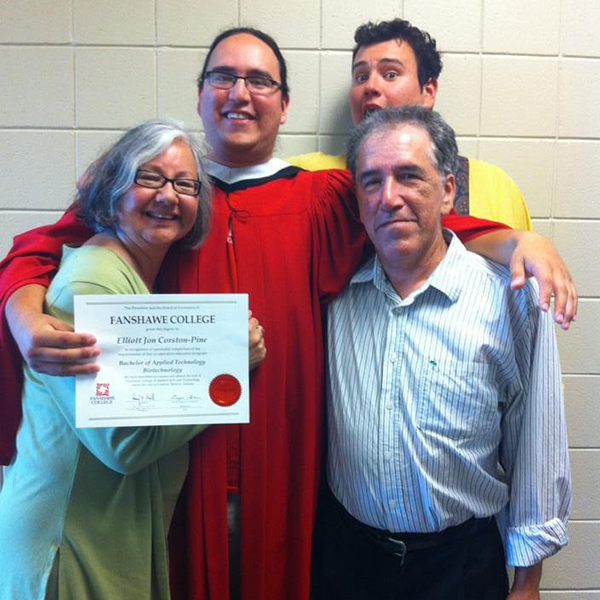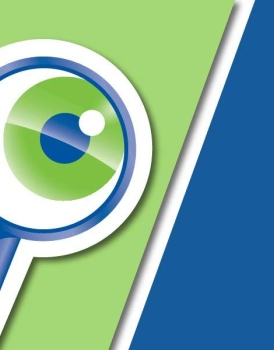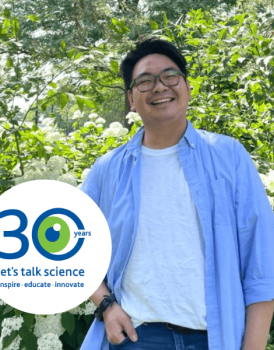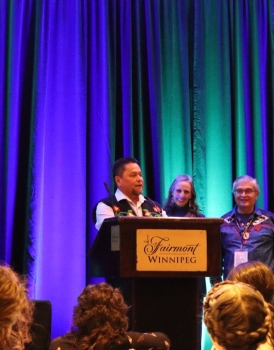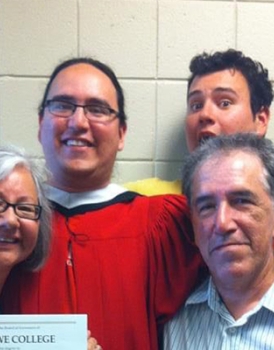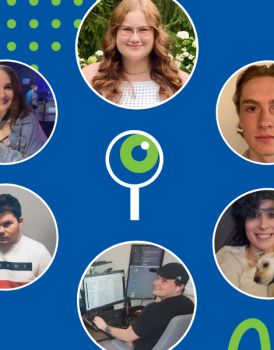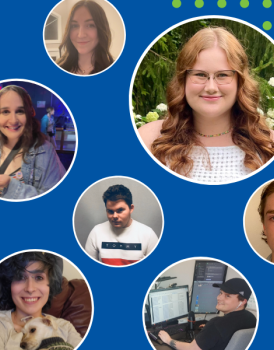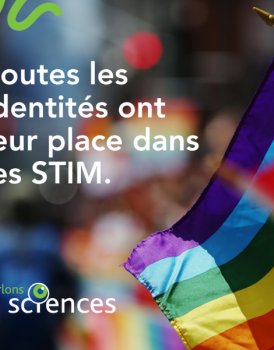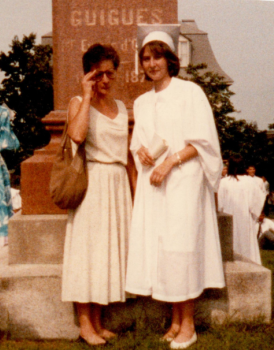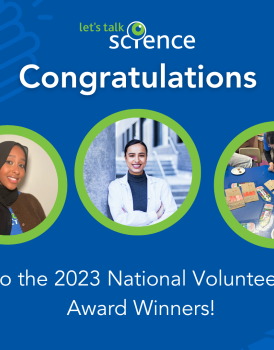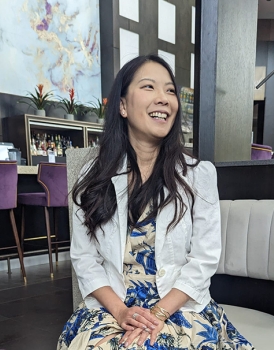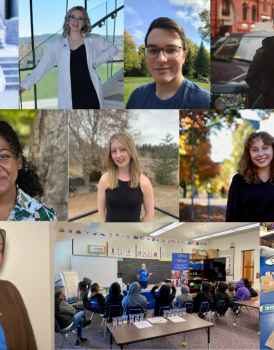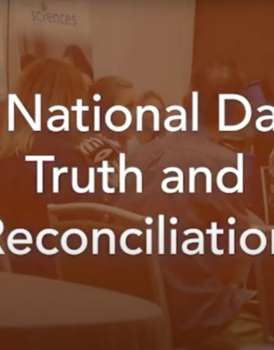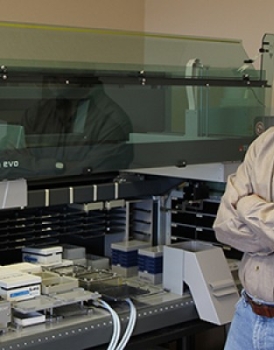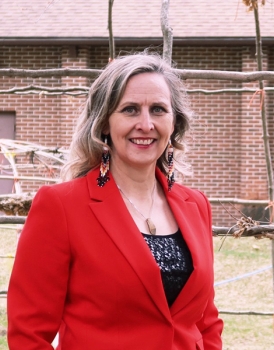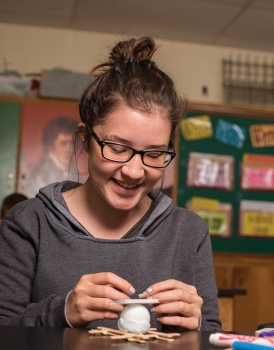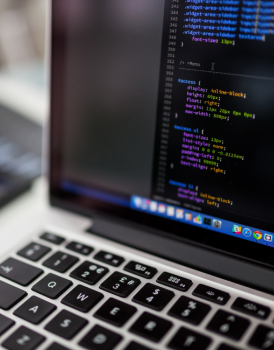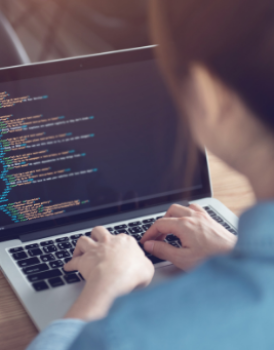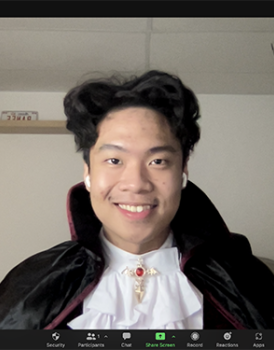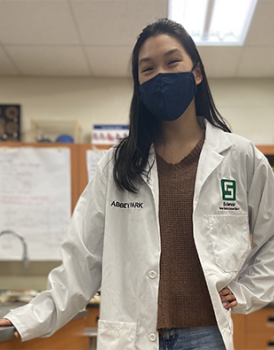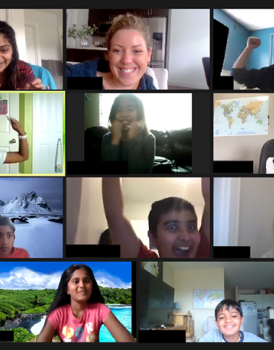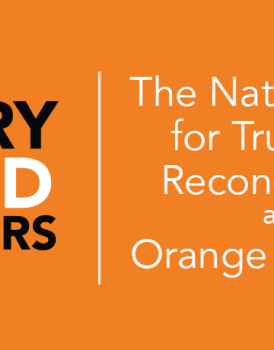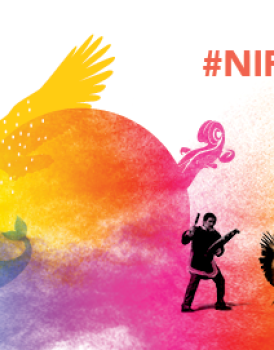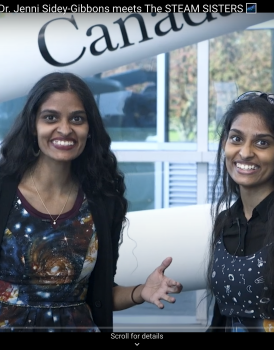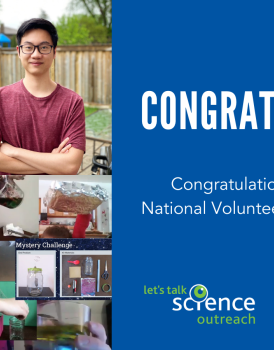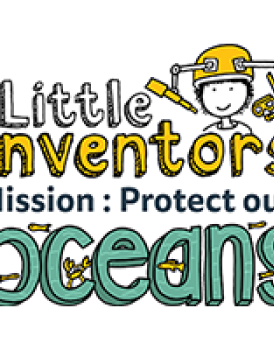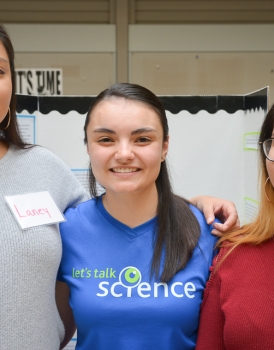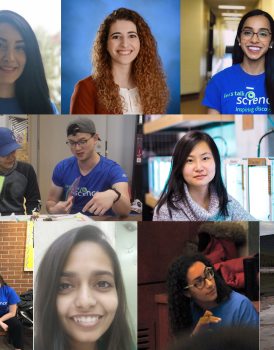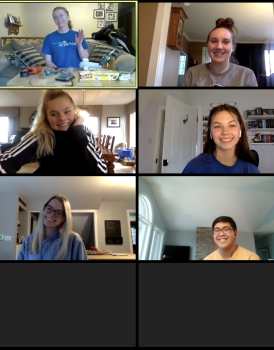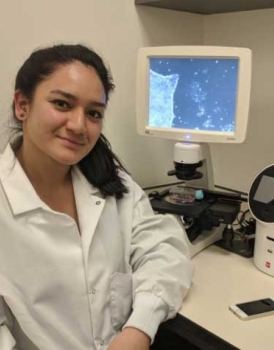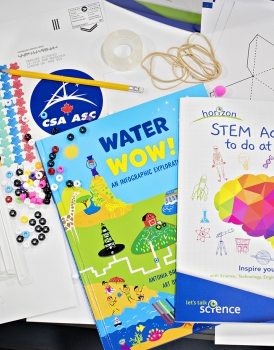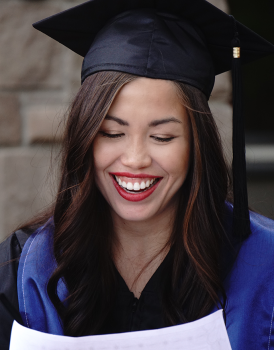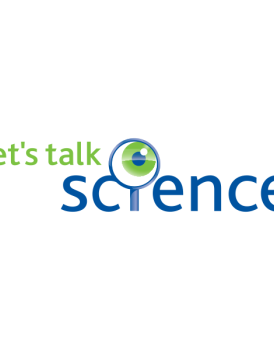Diversifying STEM
Our world needs STEM, and STEM needs diverse talents and perspectives.
Let’s Talk Science empowers youth, preparing them for future careers and citizenship roles through meaningful STEM engagement. We focus on supporting the development of all children and youth into creative, critical thinkers and knowledgeable citizens who can help solve the complex problems of a changing world. We do this with programming for youth and educators and by mobilizing networks of volunteers and teacher leaders.
Valuing equity, diversity, inclusion and accessibility (EDIA) we strive to address systemic barriers that continue to prevent too many people from engaging in STEM. Embracing the principles of the Truth and Reconciliation Commission Report, Let’s Talk Science takes a multi-pronged approach to EDIA, as described below.
Our Commitment Reconciliation Through STEM Our ActionsInspiring Stories
Our Commitment - EDIA
We believe that an authentic commitment to EDIA principles can lead to large-scale transformation in STEM education. We are cultivating a diverse and inclusive workplace that values and respects the unique perspectives of individuals regardless of gender, race, disability, sexual orientation, gender identity, cultural background or religious beliefs. By nurturing equity and inclusion within, we are better positioned to catalyze positive change externally through our programming, partnerships, research, and other activities.
Reconciliation Through STEM Engagement: Indigenous People and Programming
As an Elder reminded us, we need to reflect and build on the spirit of past, present and future and how that spirit guides us in our work. We believe that meaningful STEM education should meet youth where they are. It's important to help all youth understand Indigenous perspectives and connect with Indigenous role models.
We're dedicated to weaving these principles into all our programs because Indigenous Knowledge and western science – used together – can lead to effective solutions for difficult problems. It also builds appreciation for the wonders of our world.
Our Indigenous Strategy, a vital part of our Equity Plan, guides this work. With invaluable input from our National Indigenous Advisory Circle, along with the wisdom of Knowledge Keepers and relationships with Indigenous organizations, we are building a sustainable, reconciliatory approach to our work.
Our Actions
From our earliest programs, such as those co-designed with Indigenous communities in Southwestern Ontario in the 1990’s, our ongoing collaboration and partnerships with equity-deserving organizations, to the appointment of our first (Indigenous) Director of Equity, we continue to tackle barriers and engage all youth in meaningful and relevant STEM programming.
We know that financial barriers can impact participation in STEM education. Therefore, our resources and programs are free of charge to everyone, thanks to philanthropy and partnerships.
Let’s Talk Science continues to build on a long-standing commitment to EDIA in many ways
National Organization and Operations
- Aligning with the goals of the federal 50:30 Challenge in our governance and senior leadership
- Increasing diversity across all teams
- Mandatory Indigenous cultural competency training for all staff
- Equity-based hiring practices, including an optional self-identification survey for job applicants
- A staff Equity Working Group that supports an inclusive environment
- Commitment to amplifying equity-deserving voices
- Partnerships to engage equity-deserving youth, including with United for Literacy, BGC Canada, San Romanoway Revitalization Association, Canadian Black Scientists Network, IDEA-STEM, Imhotep's Legacy and others
Programming for Youth
- Inclusive design criteria that guide program development
- Indigenous cultural competency training for volunteers
- An approach to Outreach that empowers post-secondary partners and volunteers to offer locally responsive programming for youth, educators and volunteers (e.g. Let’s Talk Science Black Volunteer Collective; programming in libraries and community centers etc)
- Travel funding for volunteers to visit rural and remote communities
- Significant expansion of our virtual programming and online presence, which reduces geographic barriers (STEM Storytime, STEM Club, Curious Careers, High School Symposiums, Let’s Talk Science Challenge, Let’s Talk Careers competition)
- Improving digital accessibility by adding descriptive text to images, a hover glossary on selected text, interactive content (e.g., images with hotspots) and more
- Providing online resources in alternate forms to audiences with limited internet access
Programming for Educators
- Inclusive design principles underpin our professional learning programs, workshops, resources and events for educators. Specific examples include:
- Indigenous Ways of Knowing
- Supporting learners with visible/invisible disabilities
